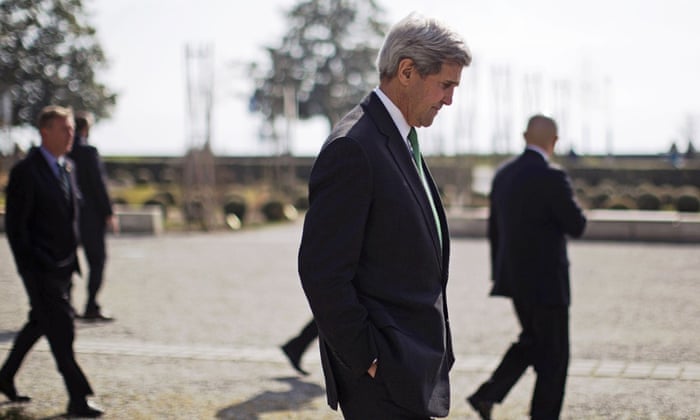[h=1]Obama’s Iran deal makes US, Israel more secure[/h]12:01 a.m. PDT March 14, 2015
TNS FORUM (EDITORS: The writer is addressing the question, “Does Obama’s pending deal with Iran really endanger the U.S. and Israel?” We suggest pairing this with IRANDANGER-PRO.)
By John B. Quigley
Tribune News Service
(TNS)
Israel’s survival is not at stake in the current flap over U.S. negotiations with Iran about its nuclear program, although Israeli Prime Minister Benjamin Netanyahu claimed it was when he spoke to Congress on March 3.
Netanyahu argued that Iran has a “voracious appetite for aggression,” citing a plot by a Persian viceroy, Hamam, to kill Jews 2,500 years ago.
He also cited contemporary situations that he said show Iran’s aggressiveness, hence the danger to Israel were Iran to get nuclear weapons. But his examples all related not to direct aggression by Iran, but that country’s aid to groups in other countries.
One was “the Shiite militias of Iraq,” which, he said, are “rampaging through Iraq.” How that “rampaging” threatens Israel, Netanyahu did not explain. He omitted the fact that these Shiite militias are fighting ISIS in unspoken alliance with the United States.
The Western powers, with the U.S. in the lead, have imposed harsh economic sanctions on Iran to force it to negotiate over its nuclear program.
Iran can be faulted on many grounds. But Iran has not invaded other countries. Its only war in recent history was against Iraq in the 1980s, and that war was started by Iraq.
And Iraq was given material aid by the United States.
If one goes looking for countries in that part of the world that possess nuclear weapons and have committed aggression, there is only one.
Israel has had an arsenal of nuclear weapons since the 1960s. In 1967, Israel committed aggression against Egypt, Jordan and Syria, taking considerable Arab territory in the process.
Netanyahu sees nuclear weapons as just over the horizon in Iran, but the recently retired head of his own intelligence service, the Mossad, was quoted as using a barnyard expletive as he watched Netanyahu tell Congress how quickly Iran could get the bomb.
That reaction was consistent with a 2012 Mossad report, in a document made public only a few days ago, that said that Iran was “not performing the activity necessary to produce weapons” in its nuclear program.
Challenging the United States for downplaying an Iranian threat serves a purpose for Netanyahu. It helps him deflect criticism that he is blocking an accommodation with the Palestinians.
If Israel is under “existential threat,” how can it give up territory? That said, the fewer nuclear weapons around the world, the safer we all are.
That is the commendable idea behind the Nuclear Non-Proliferation Treaty of 1968. It says that existing nuclear powers should scrap their nuclear weapons, and that other states should not develop them.
Unfortunately, the nuclear powers have been slow to comply. That failure deprives them of the moral high road when they pressure non-nuclear powers like Iran. Iran has signed the 1968 treaty, a step that Israel so far refuses to take.
Recently leaked information about the likely content of a deal with Iran is being used by President Obama’s critics to throw cold water on the worth of such a deal. But the likelihood is that the deal would include international inspection of a kind that would make it difficult for Iran to develop nuclear weaponry.
And the jury is still out on whether Iran is trying to develop weaponry in the face of its insistence that it is not.
Within recent days, Iran has let inspectors from the International Atomic Energy Agency into Iran to see sites the Agency wants to inspect.
Senate Republican opinion notwithstanding, a negotiated solution with Iran is the best route to dealing with this matter. An agreement, even an imperfect agreement, is better than a permanent standoff. An agreement will also give relief to the ordinary people of Iran, who have borne the brunt of the economic sanctions the West has in place against Iran.






 ointer:
ointer:







